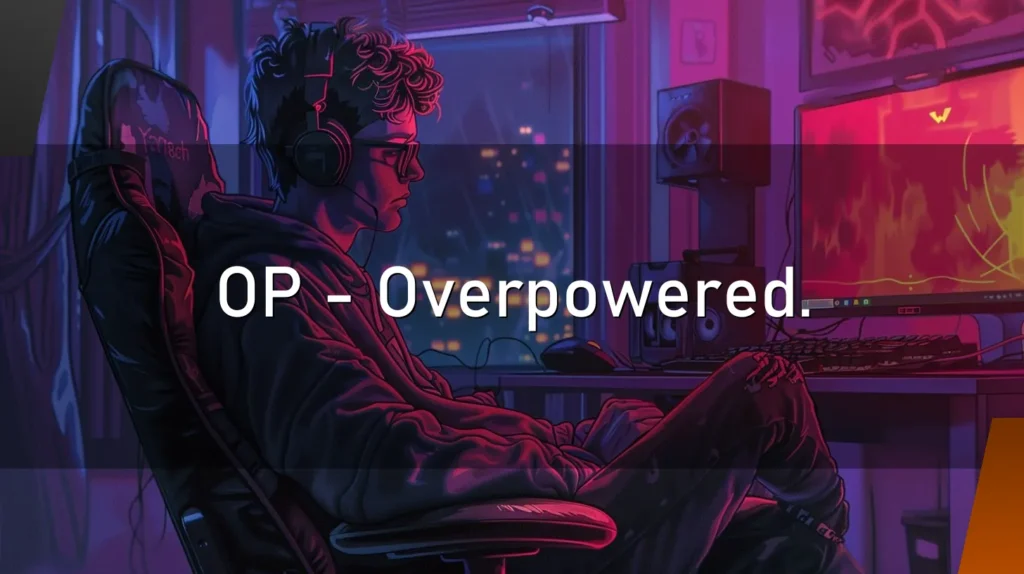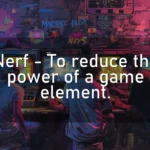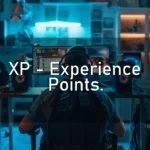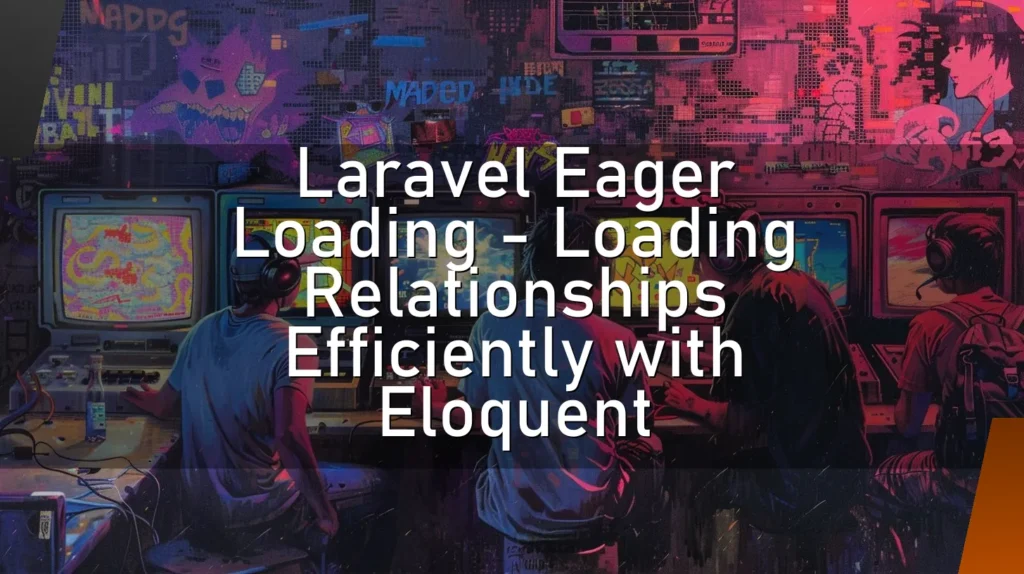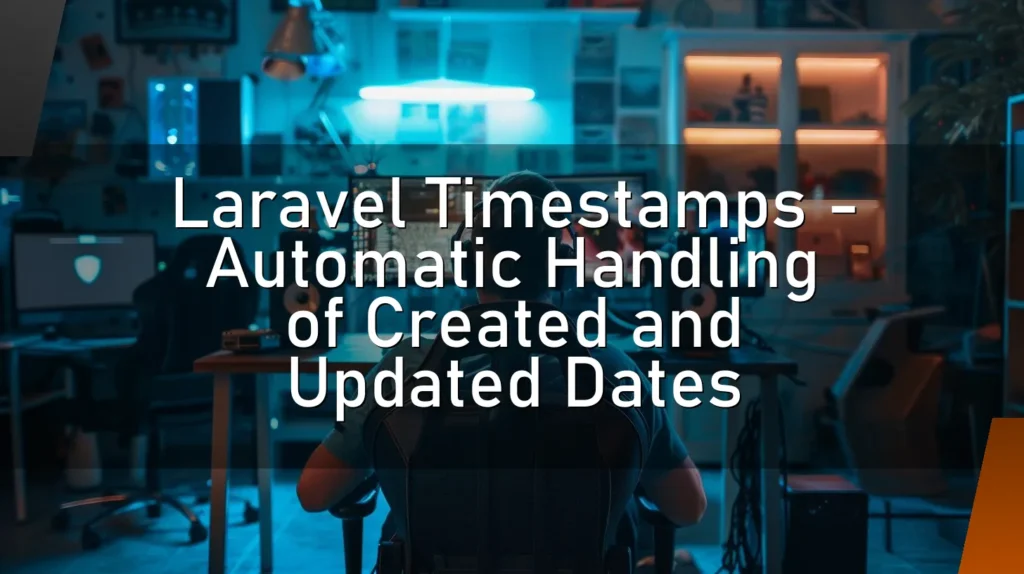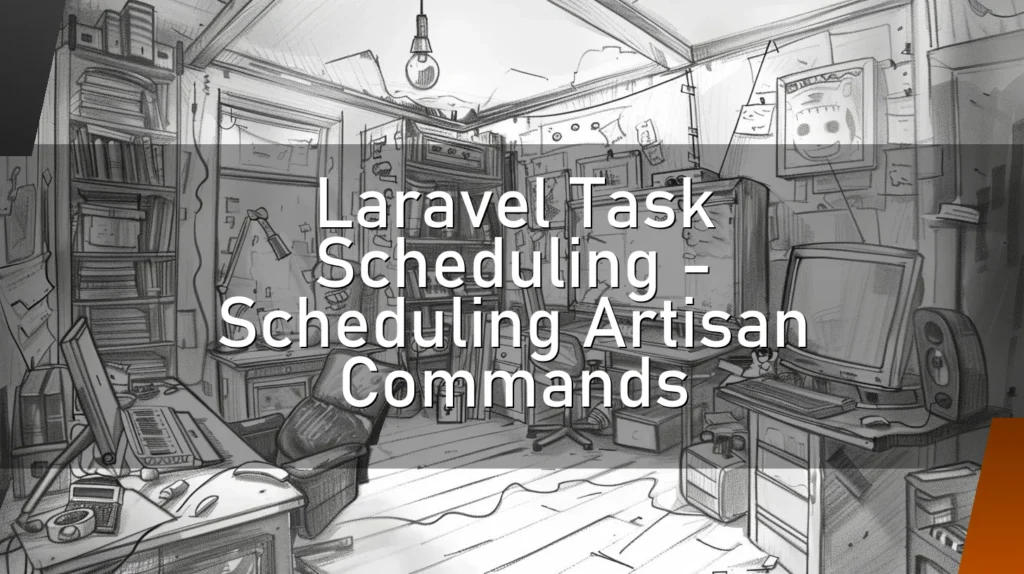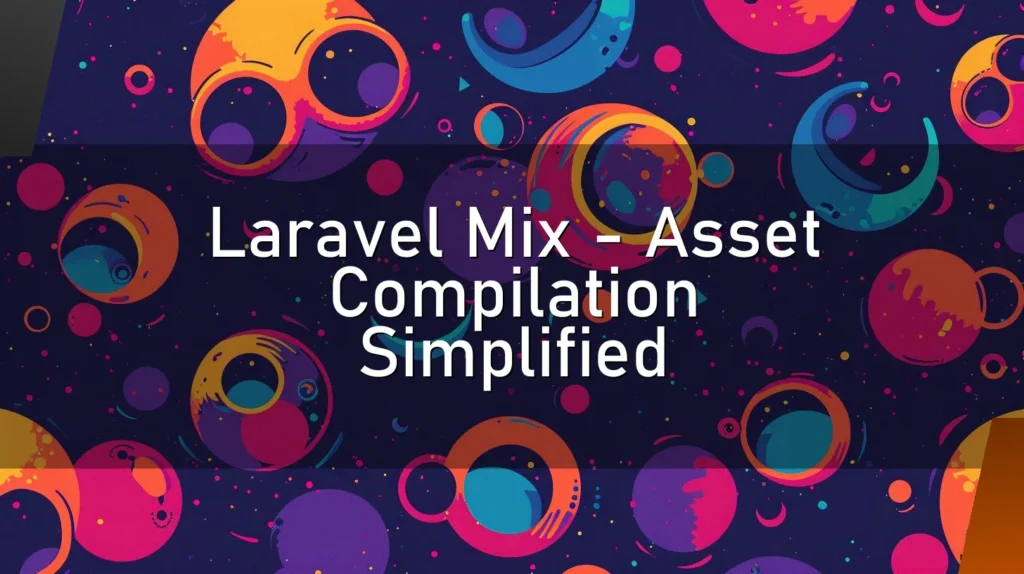OP – Overpowered
How a Nerd Would Describe It
Imagine your favorite superhero, now give them the strength of Superman, the speed of the Flash, the intellect of Batman, and the charm of Tony Stark. Congratulations, you’ve just created an OP character! 🌟 In gaming and nerd lingo, OP stands for "Overpowered." It’s used to describe anything or anyone who is exceptionally stronger, faster, or simply better than everything else, often to a point where it’s unfair. Think of it as a cheat code for life, but without the guilt of actually cheating.
Details
Being OP can be a blessing or a curse. In video games, an OP character or item can make the game ridiculously easy for the user but incredibly frustrating for everyone else. 🕹️ Imagine playing a game of tag where one kid has rocket boosters attached to their feet – yep, that kid is OP.
In competitive settings, like esports or role-playing games, balance is key. An OP element can ruin the fun, making the competition less about skill and more about who can exploit the overpowered feature first. 😵💫 However, for casual gamers, using OP characters or weapons can be a thrill, a way to vent after a tough day of work or school.
Being overpowered isn’t just limited to video games. It can describe anything that is disproportionately strong or effective. That superhero with every power imaginable? OP. That one coworker who seems to get every project done three times faster than everyone else? Also OP.
Other Similar Words Which Nerds Use
- Broken: When something is so OP that it’s considered ‘broken’ with no room for argument. 🛠️
- God-tier: This is the top echelon, where OP characters or items reside. Think Zeus, but with extra lightning bolts. ⚡
- Meta: This stands for "Most Effective Tactic Available." If a tactic or character is OP, it can become the meta. 🧩
- Nerf: To nerf something is to reduce its power to make the game more balanced. Think of it as taking the rocket boosters away from our previous example. ✂️
👍 Correct Usage
Proper usage of "OP" requires context:
- “That new character in the game is so OP, I can’t believe they haven’t nerfed him yet!” 🥇
- “Did you see the latest patch notes? They nerfed the OP weapon everyone was complaining about.” 🔫
- “Her presentation skills are OP; no wonder she always wins the best speaker award.” 🎤
🛑 Wrong Usage
When “OP” is misused, it can leave people confused:
- “I think my coffee is OP today.” (Unless it’s giving you superhuman abilities, this isn’t the right way to use OP.) ☕️
- “That sunset is so OP!” (Nature is beautiful, but inanimate objects can’t be overpowered.) 🌅
- “My grandmother’s knitting is OP.” (Unless she’s knitting spacesuits that can withstand black holes, this usage is a bit off.) 🧶
Pros and Cons of Being OP
Pros:
- Fun Factor: Being OP can be a lot of fun. You get to feel invincible and can breeze through challenges. 🌟
- Learning Tool: Sometimes, using OP items can help beginners understand game mechanics without constantly struggling. 🧠
- Stress Relief: After a tough day, being the most powerful character can be cathartic. 🚀
Cons:
- Lack of Challenge: The game or activity can become boring quickly if there’s no challenge. 💤
- Unfair Advantage: It can be frustrating for others who have to compete against something or someone OP. 😤
- Dependency: Reliance on OP elements can make it hard to enjoy the game or activity without them. 🪤
The Balancing Act
Game developers walk a tightrope when it comes to balancing elements within their games. If they inadvertently make something OP, they often have to issue patches or updates to nerf it. This process can be contentious; some players enjoy the OP elements and are resistant to changes, while others demand more balanced gameplay.
Balancing extends beyond gaming into areas like sports, workplace dynamics, and even social settings. If one person or element is too dominant, it can throw off the harmony and make the experience less enjoyable for everyone else.
Why OP is a Hot Topic
The concept of OP has become a significant talking point in communities like gaming, anime, and even professional sports. The reason is simple: fairness. People crave balanced competition because it’s more engaging and rewarding. Imagine watching a soccer game where one team has 15 players to the other’s 11 – not very exciting, right? ⚽
Conclusion
In conclusion, the term OP or "Overpowered" is a double-edged sword. It brings joy and frustration, often in equal measure. Whether in gaming, everyday life, or any competitive environment, something or someone being OP can significantly impact the experience. 🌟
Understanding the nuances of what it means to be OP, and when and how to use the term correctly, can make you sound more knowledgeable and in-tune with the community around you. Besides, it gives you a fun and quirky way to describe anything that feels like it’s got rocket boosters strapped to its feet! 🚀
So, the next time you encounter something or someone who seems to break the rules of fairness and balance, you’ll know exactly what to call it: OP. And remember, with great OP-ness comes great responsibility – use it wisely! 😉

